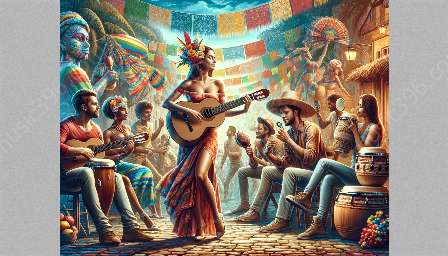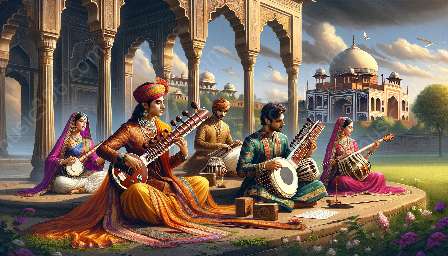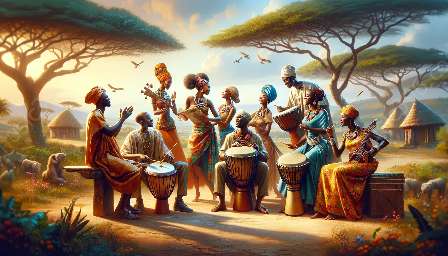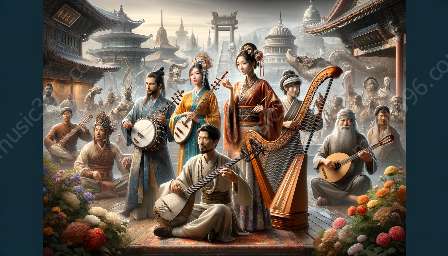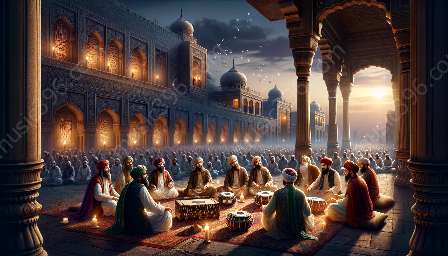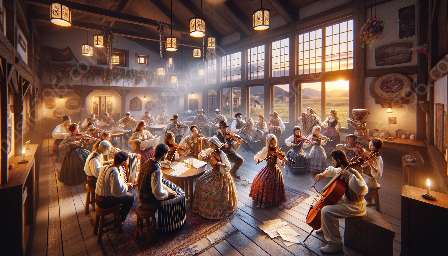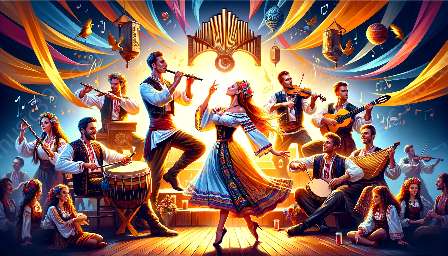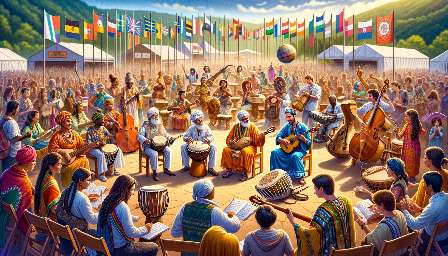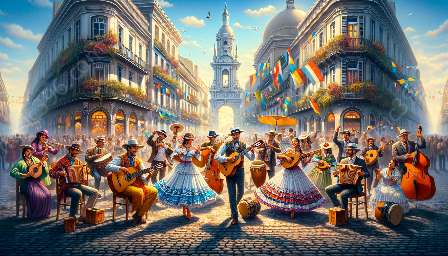Samba music and popular Brazilian traditions hold a significant place in the cultural fabric of Brazil, representing a blend of diverse influences that has shaped the nation's unique identity. This topic cluster will delve into the history, evolution, and cultural significance of Samba music, as well as explore the popular traditions and customs that are deeply rooted in Brazilian culture. Through this exploration, we will gain a deeper understanding of how Samba music has become a global cultural phenomenon, intertwining with world music traditions and captivating audiences around the world.
The Origins of Samba Music
Samba music traces its origins to the vibrant cultural melting pot of Brazil, blending indigenous, African, and European musical elements. It emerged in the late 19th and early 20th centuries, primarily in the urban communities of Rio de Janeiro and Bahia. Samba's rhythmic and melodic characteristics reflect the diverse cultural heritage of Brazil, incorporating elements of African percussion, Portuguese melodies, and indigenous rhythms. Over time, Samba has evolved into various sub-genres, each with its distinct stylistic elements and regional variations, reflecting the rich cultural diversity of Brazil.
Cultural Significance
The cultural significance of Samba music extends beyond its role as a musical genre, deeply embedded in Brazilian society and traditions. Samba is intricately tied to various cultural practices, such as carnival celebrations, dance, and community gatherings. It serves as a means of expression, reflecting the social, political, and historical narratives of different communities across Brazil. Whether in the streets of Rio de Janeiro during Carnival or in the intimate settings of local samba clubs, the music and rhythms of Samba form an integral part of Brazilian identity, fostering a sense of unity and connection among its people.
Global Impact of Samba Music
The infectious rhythms and exuberant energy of Samba music have transcended geographical boundaries, garnering global recognition and influencing world music traditions. Samba's infectious beats and vibrant melodies have captured the hearts of audiences worldwide, leading to its widespread popularity beyond Brazil's borders. It has become a symbol of Brazilian culture and a conduit for international cultural exchange, inspiring musicians and artists from various corners of the world. The global impact of Samba music has led to cross-cultural collaborations and the integration of Samba elements into diverse musical genres, enriching the global music landscape.
Popular Brazilian Traditions
Brazilian traditions are deeply intertwined with the rhythm and spirit of Samba music, reflecting the country's diverse heritage and vibrant cultural expressions. From the lively and colorful Carnival parades to the traditional dance forms such as the samba de roda and capoeira, Brazilian traditions encapsulate the dynamic energy and diversity of the nation's cultural tapestry. Additionally, culinary traditions, religious practices, and folklore rituals contribute to the rich tapestry of Brazilian culture, creating a captivating mosaic of traditions that continue to thrive in contemporary Brazilian society.
Samba and World Music
Samba music's unique blend of rhythms, melodies, and cultural narratives positions it as a prominent figure in the realm of world music. Its fusion of diverse musical influences and its ability to convey the essence of Brazilian culture make it an integral part of the global music scene. As an ambassador of Brazilian traditions, Samba music serves as a bridge between cultures, fostering cross-cultural dialogue and appreciation. Its compatibility with world music lies in its universal appeal, connecting people from different backgrounds through the universal language of music.
As we journey through the world of Samba music and popular Brazilian traditions, we come to appreciate the depth of cultural expression, the rhythmic tapestry, and the global resonance of this vibrant musical genre. From its humble origins in the streets of Rio de Janeiro to its influence on the world stage, Samba music continues to captivate audiences and celebrate the spirit of Brazilian culture in harmony with the diverse traditions of world music.

